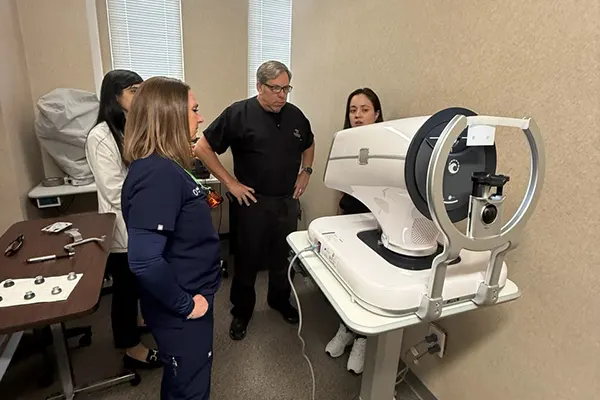Macular Degeneration
What is Macular Degeneration?
Age-Related Macular Degeneration (AMD) is a disease of the retina (the “film” of the eye which captures the images we see, before they are sent to the brain). The retina covers the entire back surface of the eye, though macular degeneration typically affects only the central most aspect of the retina, called the “macula.” This region is responsible for our sharpest central vision and color vision.
Though most people with macular degeneration maintain good vision, the disease is so common, that it is the leading cause of legal blindness in the United States, in patients over 60. Macular degeneration can make it difficult or impossible for patients to perform routine activities such as reading and driving.
There are two forms of macular degeneration: the wet type and the dry type. Though both may cause devastating visual loss by creating a scar in the central retina (the macula), the wet type is responsible for the majority of the severe cases, because of the development of abnormal, leaking blood vessels found in this form of the disease.
The “dry” form of AMD is more common, less severe, and usually causes a gradual loss of vision. Studies suggest that dry AMD is caused when white-yellow fatty deposits accumulate under retinal tissue.
There are exciting new therapies for macular degeneration for patients at certain stages of the disease process, but currently, only a small percentage of patients can be treated. Today, new therapy called VEGF (Vascular Endothelial Growth Factor) not only stabilizes macular degeneration but for the first time may improve a patient’s vision in many cases. Also, a recent study showed that antioxidant vitamins and zinc might reduce the effect of AMD in some people. An early diagnosis is critical to reduce the risk of permanent vision loss from AMD.
Because of the high risk of vision loss from AMD and other age-related diseases, the American Academy of Ophthalmology recommends a dilated eye exam every two years for patients over age 40 and annually for patients over age 60.


